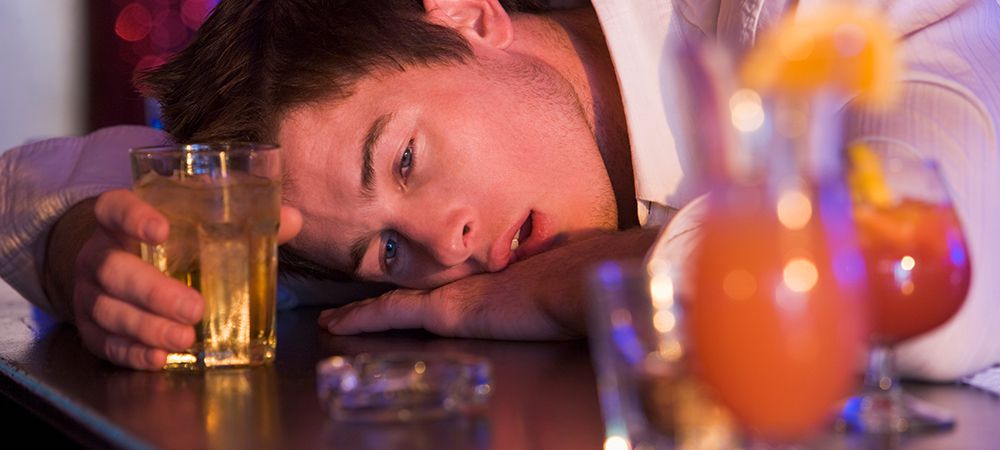
What is Binge Drinking?
Many people don’t realise that binge drinking is one of the most common patterns of alcohol abuse in Canada. In fact, over 50% of all the alcohol consumed by people is served during binge drinking.
Binge drinking is a potentially dangerous pattern of ingesting large quantities of alcohol over a short period of time. In Canada, binge drinking is a serious public health concern, especially among college-age adults (ages 18-to-22). Roughly 40% of college students in Canada report binge drinking.
Thanks to research, we are able to provide successful addiction treatment plans that work because we understand alcoholism. The first step to recovery is the most difficult one. However, it is better to avoid becoming addicted in the first place. Once you understand binge drinking it will be easier to start to change your behaviour.
What is Binge Drinking?
Binge drinking is the consumption of large amounts of alcohol over two hours or less resulting in a blood alcohol concentration (BAC) of 0.08% or 0.08 grams per deciliter of alcohol or higher.
For people assigned male at birth, a BAC of 0.08% or 0.08 grams per deciliter of alcohol or higher is often reached after drinking five or more alcoholic drinks. For people assigned female at birth, it typically occurs after drinking four or more alcoholic drinks. Though BAC most commonly refers to the amount of alcohol in a person’s blood, such standardised levels of intoxication can be estimated through both blood and breathalyser tests. In one’s blood, BAC is the measurement of the weight of ethanol in grams per deciliter of blood. In one’s breath, BAC is the measurement of the weight of ethanol in grams per 210 litres of breath.
People may subjectively experience alcohol intoxication differently for several reasons, including how much alcohol they consistently drink, their subsequent level of alcohol tolerance, individual differences in alcohol metabolism, or additional substance use. In turn, this variability can make BAC and the number of drinks someone has had an inconsistent indicator of intoxication or drunkenness. If you participate in binge drinking at all you could become a candidate for addiction recovery.
Who Binge Drinks?
When you think of binge drinking, young adults – particularly college students – may spring to mind. But older people, in particular adults 65 or older, binge drink as well. One in six adults in Canada binge drinks at least four times a month, with men being twice as likely to engage in the behaviour than women. A person who drinks excessively in their youth is at high risk of continuing the behaviour into adulthood and developing an alcohol use disorder (AUD).
Binge Drinking and Alcohol Abuse: Signs of a Problem
Although not everyone who binge drinks has an alcohol abuse disorder, binge drinking can increase this risk. The diagnosis of AUD is based on characteristic patterns of problematic alcohol use to have taken place during a 12-month period. Several of these diagnostic criteria include the following:
- A loved one tells you that you have a problem
- You have strong cravings for alcohol
- You are unable to cut down on alcohol use
- You expend a lot of time and energy getting and drinking alcohol, and recovering from its effects
- Your alcohol use renders you incapable of completing tasks at home, school, or work
- You continue to use alcohol despite it causing social and interpersonal issues
- You avoid social, work, and other activities due to your alcohol use
- You continue to use alcohol in hazardous situations such as while driving
- Your consumption of alcohol continues in spite of physical or mental health issues related to its use
- You exhibit increase alcohol tolerance, which is shown by the need to use more to feel its desired effects
- You experience withdrawal symptoms when you attempt to stop using alcohol
What Causes Binge Drinking?
Why do people binge drink? Sometimes it’s because of social pressure, or because they want to feel less anxious or awkward in a social setting. Young people may feel pressured to binge drink at seasonal events, such as prom or a sporting match. But people also binge drink alone, because they want to hide the behaviour from loved ones.
A pattern of binge drinking over an extended period of time can leave permanent damage on parts of the brain that impact how you experience pleasure and practice self-control. These changes make it harder to say no to alcohol, resulting in the person continuing to use it to temporarily relieve their feelings of sadness, anxiety, fear, anger, or guilt.
Several other sociological and psychological factors may contribute to binge drinking. These factors include:
- Living or socialising in a drinking culture such as at some colleges or in families with heavy drinkers
- Peer pressure, especially among young adults
- Low cost of and easy access to alcohol
- Boredom
- Having poor coping skills
- Experiencing trauma
- Low educational goals
- Depression and anxiety
Binge Drinking Effects
There are significant short-term and long-term effects of binge drinking. In the short term, a person may experience nausea, vomiting, hangovers, and memory loss. They can also incur personal injury and be at risk of alcohol poisoning, which can lead to death. The long-term effects of binge drinking can include hypertension, heart problems, long-term memory damage, depression, brain or liver damage, and cancer. Binge drinking can also lead to unemployment, domestic violence, sexually transmitted diseases, unplanned pregnancy, and car accidents.
An indicator of binge drinking can be frequent blackouts. When you drink excessively, you impair your brain’s ability to keep short-term information in your memory. A blackout has happened when a person cannot remember what happened or what they said when they were drinking. You might experience a partial blackout or a total one. Continual blackouts can also impact your memory later in life, especially if you start drinking when your brain is still developing.
Is Binge Drinking Considered Alcoholism?
Binge drinking does not necessarily mean that a person is an alcoholic or suffers from severe AUD. However, binge drinking may increase the risk of a person developing an addiction to alcohol sometime in their life. Monitoring how a person uses alcohol, including the amount consumed, may help determine if a person is an alcoholic who needs to enter recovery.
Are You a Binge Drinker?
If you’re not sure whether you have a binge-drinking problem, here are some questions you can ask yourself:
- Do you ever have more than four drinks in a day?
- Do you ever forget what happened while you were drinking?
- Do you feel guilty or ashamed when you drink too much?
- Do you think that you need to reduce your drinking?
- Do you feel surprised when you drink more than you planned?
- Do other people comment on how much you drink?
- Do you forsake other responsibilities to make time to drink?
If you answered “yes” then you may have a binge drinking habit, which puts you at high risk of alcohol addiction.
Can You Stop Binge Drinking?
Yes, but it’s not simple. Because AUD is a chronic disease, many people can’t simply stop using alcohol for a few days and be cured. You may need long-term or repeated care to stop using completely and recover your life.
There are many options that have been successful in treating alcohol addiction, including:
- Behavioural counselling
- Medication
- Medical devices and applications used to treat withdrawal symptoms or deliver skills training during detoxification
- Evaluation and treatment for co-occurring mental health issues such as depression and anxiety
- Long-term follow-up like group counselling to prevent relapse
A range of care with a tailored treatment program and follow-up options can be crucial to your success. Addiction treatment should include both medical and mental health services as needed. Follow-up care may include community- or family-based recovery support systems.
The first step in treating habitual binge drinking is detoxification – stopping the ingestion of alcohol. This must be supervised by a healthcare professional because it can be very dangerous. Medical detox gives you access to doctors and nurses who can treat withdrawal symptoms as they arise.
Once you have safely withdrawn from alcohol, you can enter an alcohol addiction treatment program. This makes use of various forms of counselling and therapy, and can be done on an inpatient or outpatient basis.
 The First Step Toward Recovery
The First Step Toward Recovery
If you’re not sure where to begin with reducing and eliminating binge-drinking behaviour, a good start is to do a reality check with yourself. Keep a log of how often you drink and how much, as well as the circumstances leading to you drinking and how you felt about it. This can help you identify patterns or problem areas.
Secondly, pay attention to the places and people that trigger you to drink alcohol. Replace alcohol at home with other beverages, and avoid situations where you might feel the pressure to drink.
Finally, don’t be afraid to ask for help. Your primary care physician, your employee assistance provider, or a counsellor can get you started moving in the right direction. For full support that includes medical detox, rehab, and comprehensive aftercare, get in touch with Thousand Islands Rehab Centre, where an individualised treatment plan will be put together for you.
You may initially find it difficult to reduce your drinking, but you’ll sleep better, avoid hangovers, reduce stress, and improve your overall health. In short, you’ll live a life that doesn’t need binge drinking to feel full and exciting.


 The First Step Toward Recovery
The First Step Toward Recovery